June 27, 2016
The drive to Métis-sur-Mer was over 200 miles along coastline edged with mountains.
We stopped near Rimouski for a tour of the Point-au-Père Lighthouse. It is 108 feet high and octagonal. Its supports were placed to the outside of the structure to save concrete.After hiking in Maine, the stairs didn’t present a problem, but Jane’s imagination was activated by the height–especially when a ladder finished off the climb.
 Coach and car from the top of the lighthouse
Coach and car from the top of the lighthouse
After settling in at the campground, we explored the area, driving along the beach in both directions and discovering two more lighthouses, neither of which were available for climbing. Our legs were grateful. Buildings in the area are of relatively recent origin but markers along the beach provide great detail about what used to be there.
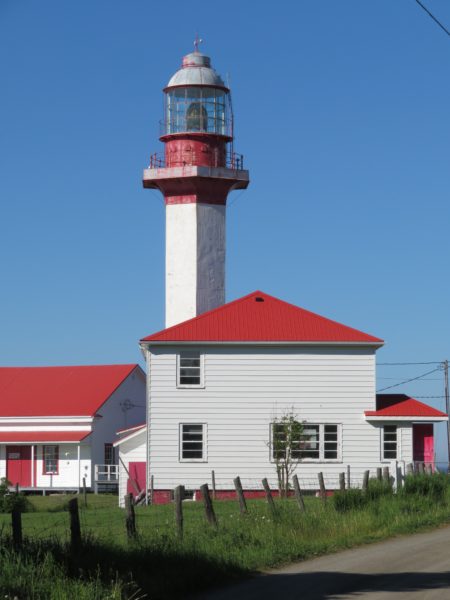 Métis lighthouse, built in 1909.
Métis lighthouse, built in 1909.
A bit later, preparations for supper were suspended when we learned that some of the group would be participating in a LEO–Let’s Eat Out–usually an impromptu pay-your-own-way visit to a local restaurant. This one was to Centre Art Marcel Gagnon. The restaurant was overwhelmed by the size of our group and we waited over an hour for our food. The wait staff spoke little English and we spoke little French (no one in the group was fluent) but the food was good. While we waited, the tide crept up over Gagnon’s concrete sculptures of people.
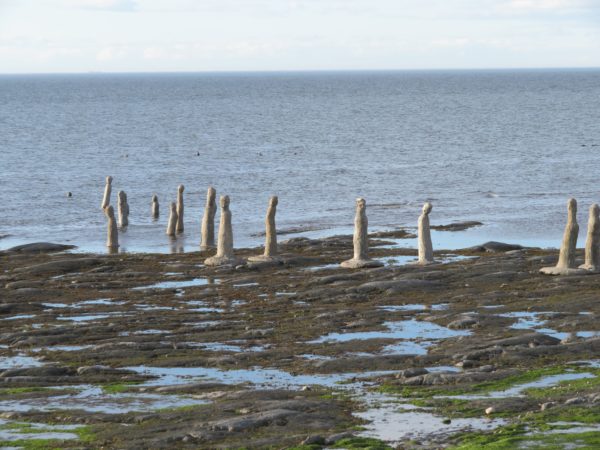 “Le Grand Rassemblement”, 100 figures sculpted by Marcel Gagnon
“Le Grand Rassemblement”, 100 figures sculpted by Marcel Gagnon
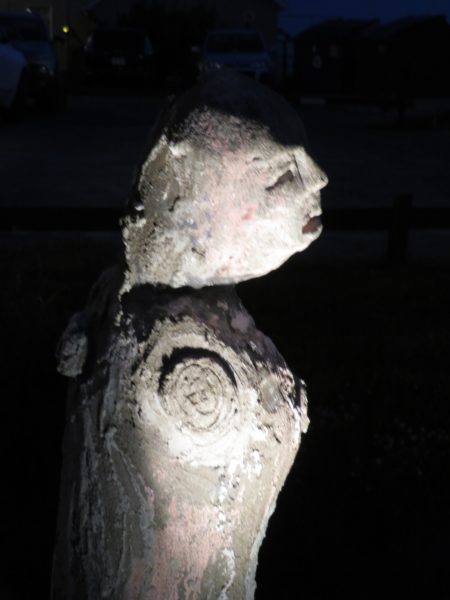 One of Gagnon’s land-based sculptures
One of Gagnon’s land-based sculptures
The Caravan had arranged our entrance to Reford Gardens on our own. The rainy day inhibited us but we began to get “coach fever” by early afternoon and imagined that the rain had eased. The gardens were beautiful. An annual International Garden Festival exhibit had recently opened. Various designers representing a variety of disciplines each designed a garden about 30X60 feet. Even in the rain these were great fun!
Pictures from the Festival:
The development of the permanent gardens began in 1926 when owner Elsie Reford began laying out the 20 acres around her family’s hunting lodge. She supervised the construction and improvement of the gardens for the next ten years. Obstacles included obtaining plants (there were no nurseries within 200 miles), building walls, creating compost, moving trees, and collecting boulders from neighboring properties.
A few shots from the garden:
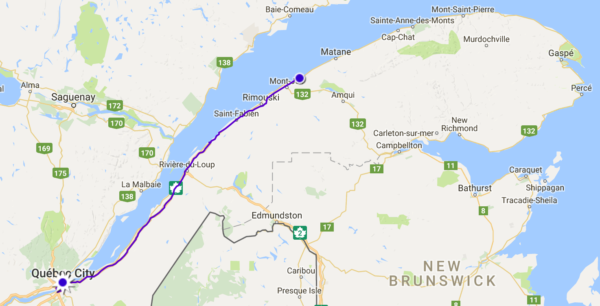
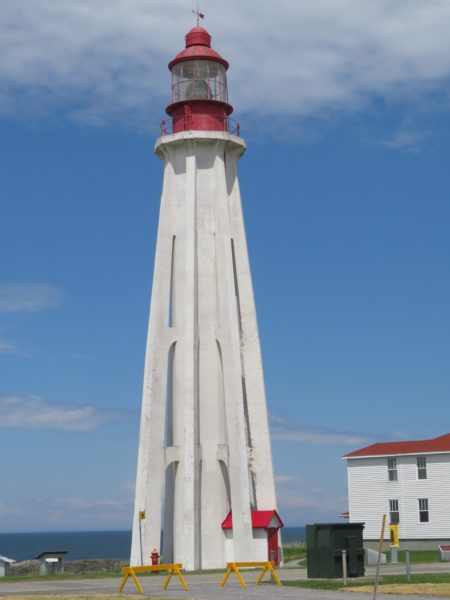
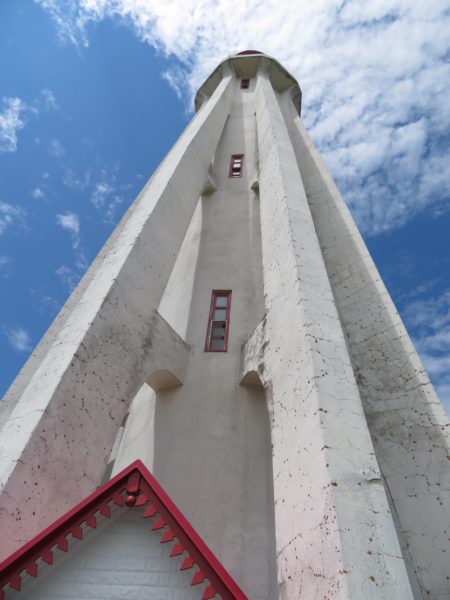
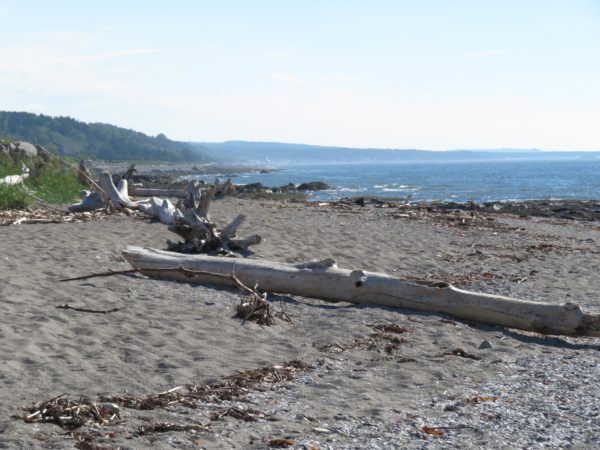

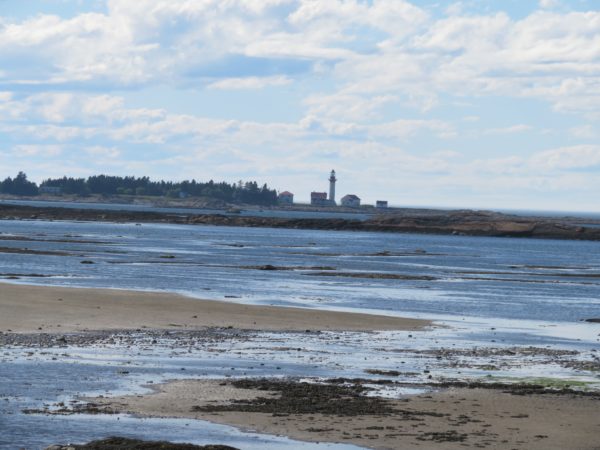
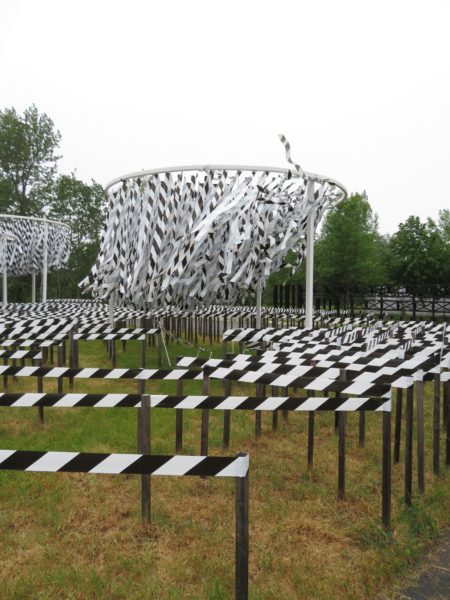
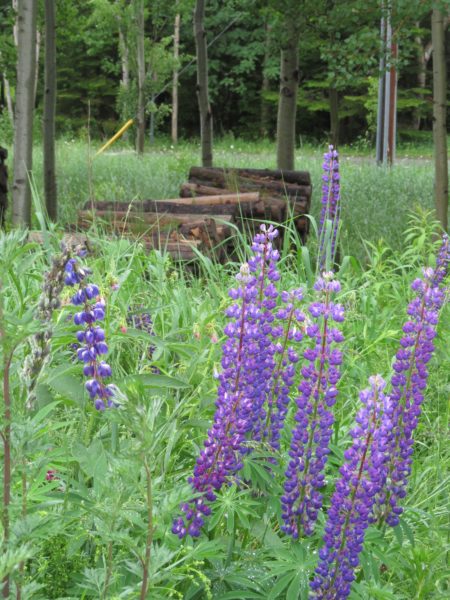
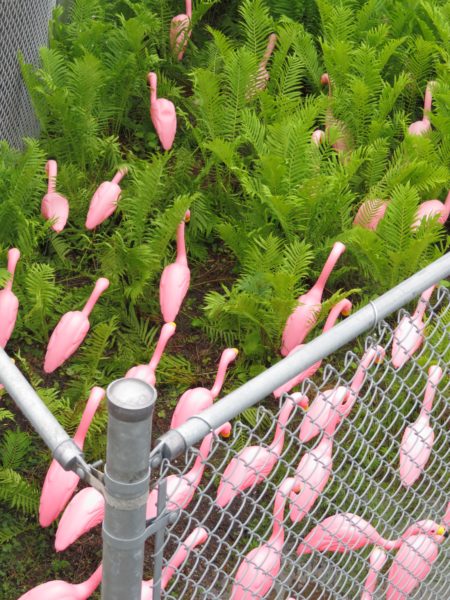
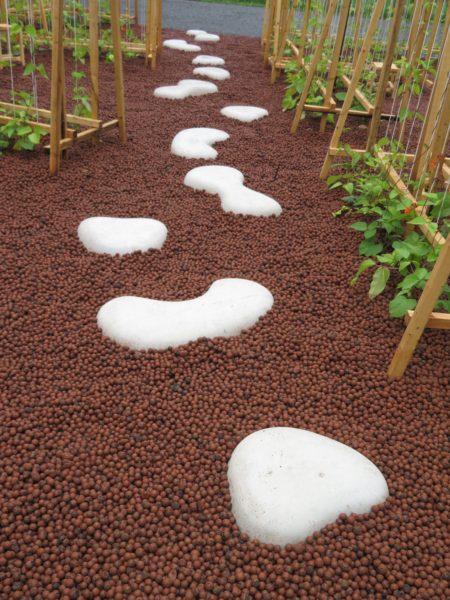

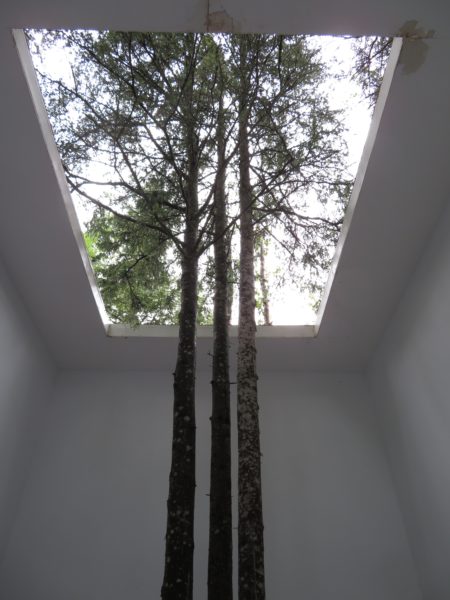
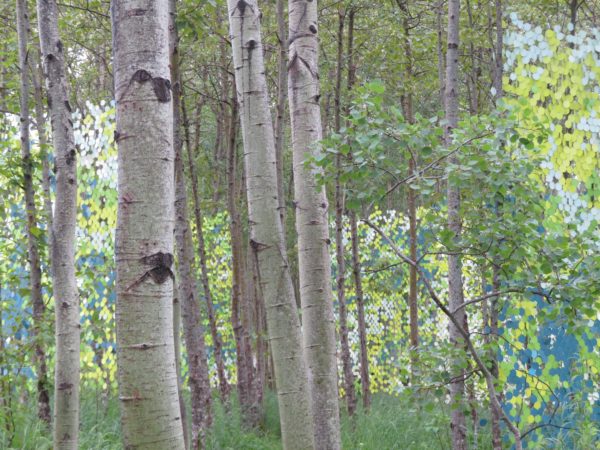

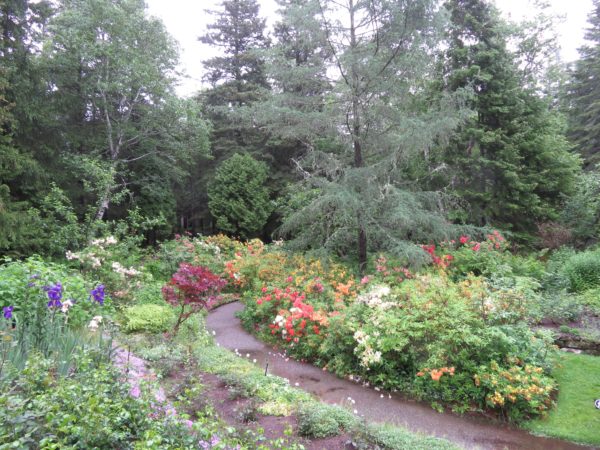
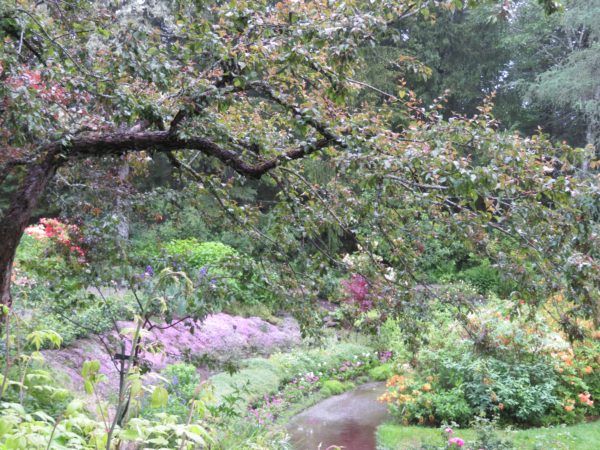
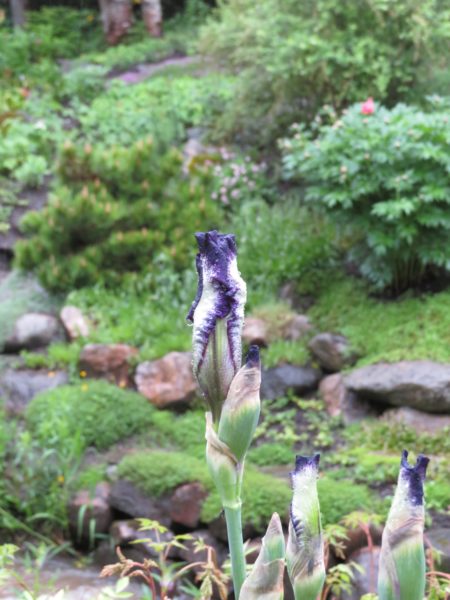
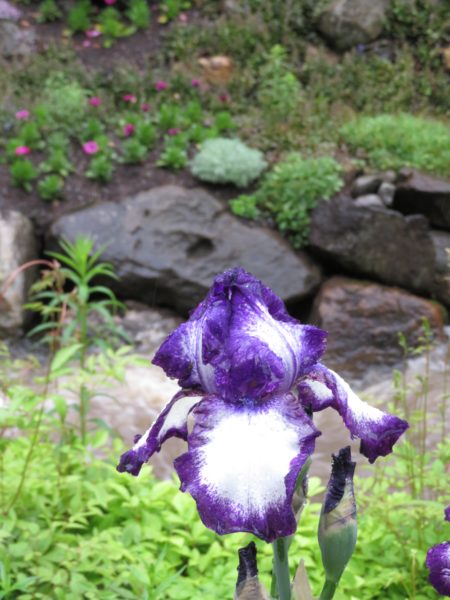



4 Comments
Roberta · September 5, 2016 at 4:33 pm
Especially enjoyed these last pictures. What was the black and white about? Did it represent something specific? Also, please tell me the flamingos were not real. Looking forward to your return. Roberta
Jane Appel · September 8, 2016 at 2:42 pm
Thanks, Roberta. I loved the black and white–I voted for it as my favorite. It was called “Line Garden” and was made of barricade tape. The creators designed it to highlight the manufactured and natural environment. The barricade tape represents safe-guarding. The tape moved in the wind making, I thought, delightful whispering sounds.
Connie Gill · September 6, 2016 at 4:37 am
Loved the gardens especially the flamingos. I’m always amazed at how some people can gat their acts together to plan and build 20 acre gardens. I can’t seem to do my own yard and it’s only 3/4 acres. Don’t you just the lupines.
Jane Appel · September 8, 2016 at 2:44 pm
Connie, I don’t think I’d ever seen lupines before [how could I NOT? Wrong place right time?] and loved them. We saw lupines from Maine all the way into Newfoundland as we followed early summer.